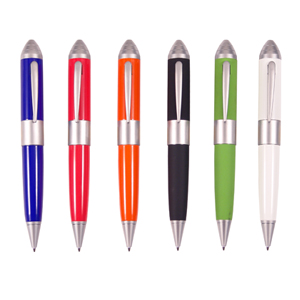
In a very short period of time USB memory sticks and flash drives have virtually replaced CDs as the preferred backup device. The advantages are too hard to ignore – more storage space, smaller size and they’re virtually indestructible.
Memory is key
When we talk about the memory, we’re not talking about the size of the drive. That’s a personal choice and you can get drives up to 64 gigs these days. Instead, we’re talking about the quality of the flash memory chips that make this drive possible.
These chips are graded by the industry. Grade A is the best and they go down from there in grading. The key is to purchase Grade A whenever possible, or at the very least, the highest grade your budget can afford. You’ll probably have to ask the vendor for this information. It’s usually not posted on a website or in a catalogue. Just know that lower grade chips may have issues, including higher failure rates, the inability to access or use all the memory and sluggish read/write speeds.
Which USB?
USB 1.x and USB 2.0 are the workhorses of the flash drive business. If you need to choose between these, always go with USB 2.0, as it is backwards compatible. USB 3.0 will be the new standard, but you’ll pay a premium for them right now and a lot of computers can’t take advantage of their capabilities anyway, except the newest ones on the market. Avoid USB 1.x drives. They are painfully slow, even if they are a great deal.
Is it RoHS compliant?
If you’re in the EU, you need to know this one. RoHS is shorthand for Restriction of Hazardous Substances. The regulations are designed to protect EU citizens from hazardous chemicals and substances. If your vendor is using components that aren’t RoHS compliant, you can be held responsible for this as well as the vendor. So ask if the flash drive components are RoHS compliant and if you need them, ask for copies of the RoHS certificates.
WEEE, it’s recyclable!
At least it should be. WEEE is a directive that encourages products to be 65% recycled. If your organization falls under the WEEE directive, you want to make sure the drives you order comply with it, otherwise you may get into trouble.
When shopping for a reputable supplier to handle your USB flash drive or memory stick order, or any other promotional item for that matter, be sure you pick one that has experience in the product lines you’re interested in. If you’re in the EU, find a trusted supplier that understands the requirements outlined in RoHS and WEEE and don’t be afraid to ask a lot of questions, especially if they aren’t immediately forthcoming with answers. That should be an immediate warning sign that it’s time to move onto someone else.
